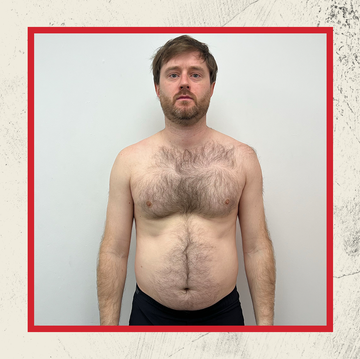It’s natural to think of dieting as a buzzkill. But new research from JAMA Internal Medicine found that eating a lot less can actually make you feel surprisingly good.
In the study, the researchers divided participants into two groups: The first group had to cut their daily calorie intake by 25 percent for 2 years.
That means someone normally eating a 2,000-calorie diet would eat 500 fewer calories per day. A significant restriction.
Related: The Tiny Change That Will Save You 527 Calories Per Day
The second group was told to continue with their regular diets, eating however much they wanted.
Both groups filled out questionnaires to measure each subject’s mood, quality of life, sleep, and sexual function. (All participants had some weight to lose or were overweight at the beginning of the study. None were obese.)
After analyzing the responses, the researchers found that the subjects in the calorie-restricted group were basically doing awesome.
Related: The Men’s Health 21-Day #CookingStreak: Eat Great, Lose Weight!
Compared to the free-for-all eaters, those who cut calories had significantly improved moods, were less tense, slept deeper, and even reported having better sex.
Related: 9 Jaw-Dropping Weight-Loss Transformations You Have to See to Believe
They also lost an average of nearly 17 pounds, compared to just 1 pound for the people in the other group.
And while that part might come as less of a surprise, the study authors suspect that the group who cut calories felt better because of all known benefits of weight loss—like extra energy and a better night’s sleep.
Related: 5 Eating Disorders You’ve Never Heard Of
Does that mean you’ll feel like a new man if you cut your calories by 25 percent? Hard to say.
While the results of the study seem promising, there’s still lots of evidence suggesting that diets can mess with your head and make it harder to lose weight in the long run.
When it comes to dieting, the most important thing to keep in mind is whether it’s something you can keep up long-term.
Related: 8 Oddly Effective Weight Loss Tips That Are Backed By Science
If the answer is no, it might not be the right meal plan.
And if the answer is yes? It may be worth trying.
But before you get started, check in with your doctor and a dietician to make sure that you’ll still be able to hit all of your nutritional bases while eating significantly less food.
The article The Surprising Reason To Cut Your Calories That Has Nothing To Do With Weight Loss originally ran on Prevention.com.













